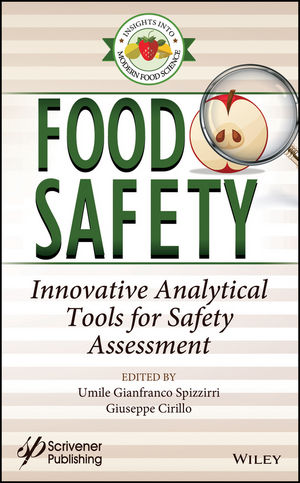Recent Support of Proposition 65 Exemption for Coffee Reinforces Need for Science-Based Nutrition Information

The words “coffee” and “cancer” have been used together in sentences more over the past several years than the coffee industry ever could have contemplated—or wanted. And in light of the current scientific evidence regarding consumption of coffee as it relates to cancer, its distaste for those headlines and that discussion is not unjustified. Recent action taken by the U.S. Food and Drug Administration (FDA), the California Office of Environmental Health Hazard Assessment (OEHHA), and the U.S. Congress illustrate active resistance to state labeling laws that conflict with science-based nutrition information, including California’s Safe Drinking Water and Toxic Enforcement Act, better known as Proposition 65 (Prop 65). Prop 65, approved by California voters in 1986, requires warning labels on products sold in California for about 900 chemicals known to cause cancer, birth defects, or other reproductive harm. The statute was amended in September 2016, and the revised regulation took effect August 30, 2018, which only increased the burden on affected companies doing business in California. OEHHA is the agency that administers and enforces the statute in California. The statute itself allows private citizens, advocacy groups, and attorneys to sue on behalf of the state and collect civil penalties and attorneys’ fees for failure to provide required warnings. While the statute may have been viewed as well-intended and effective in certain instances, it is now regarded by many as lacking the necessary scientific support and thus unnecessarily burdening businesses, confusing consumers, and, in the instance of misleading food labeling, violating federal law.
Coffee and Acrylamide
Coffee has been targeted by Prop 65 enforcers because of acrylamide, a chemical produced as a by-product of various high-temperature cooking processes (greater than 120 °C or 248 °F), including baking and roasting, particularly with carbohydrate-rich starchy foods but also in the roasting of coffee beans. Prop 65 notices of violation for acrylamide tripled between 2016 and 2017. Discovered in April 2002, the chemical forms in food from sugars and an amino acid that occur naturally in food. The chemical does not appear to be present in uncooked food and is present only at low or undetectable levels in food cooked at lower-temperature processes, such as boiling. Acrylamide generally is not present in food packaging or the environment. Very large doses of acrylamide have been linked to cancer in mice.[1] However, the World Health Organization’s International Agency for Research on Cancer (IARC) has concluded there is no consistent evidence that dietary acrylamide exposure at the much lower levels found in food, including through the consumption of coffee, is associated with the risk of any type of cancer in human beings.[2] In fact, IARC found that coffee is associated with a reduced risk for certain types of cancer, including liver and uterine cancer, and there are additional health benefits due to coffee’s strong antioxidant effects.
OEHHA Actions Regarding Coffee and Prop 65
On June 15, 2018, OEHHA announced it was siding with science. It issued a notice of proposed rulemaking, stating, “Exposures to Proposition 65-listed chemicals in coffee that are produced as part of and inherent in the processes of roasting coffee beans and brewing coffee pose no significant risk of cancer.” This proposed rulemaking could exempt coffee from Prop 65’s warning requirements. A public hearing took place on August 16, 2018, and public comments on the proposed rule were closed on August 30, 2018. OEHHA has not officially commented or initiated rulemaking since then.
FDA Actions on Acrylamide, Coffee, and Prop 65
Since the discovery of acrylamide, FDA has conducted an extensive research program regarding acrylamide levels in food, including an exposure assessment, methodology development, formation and mitigation research, and toxicology research.[3] Through these efforts, FDA has collaborated with international organizations, academia, industry, and a variety of stakeholders to develop knowledge on the chemical. In March 2016, FDA released guidance on manufacturing processes to help growers, manufacturers, and foodservice operators reduce acrylamide levels in food.[4] Consistent with the robust scientific evidence regarding the health benefits of coffee, the current dietary guidelines published by the U.S. Department of Health and Human Services and the U.S. Department of Agriculture recommend that moderate coffee consumption (three to five cups a day or up to 400 mg/day of caffeine) can be included in a healthy diet.
On August 29, 2018, FDA confirmed its position on exempting coffee from Prop 65.[5] Commissioner Scott Gottlieb issued a detailed statement strongly supporting an exemption for coffee from the Prop 65 warning requirement.[6] Part of FDA’s mission, he said, is “ensuring that food product labeling doesn’t contain false or misleading statements about safety or nutrition. This includes…statements that may be compelled under state law. Simply put, if a state law purports to require food labeling to include a false or misleading statement, the FDA may decide to step in.” Commissioner Gottlieb went on to say that a California court’s ruling backing a Prop 65 warning for coffee[7] “deeply concerned” the agency and that it strongly supports OEHHA’s proposed regulation because it has carefully reviewed the most current research on coffee and cancer, and the science does not support a cancer warning for coffee. In fact, requiring a cancer warning on coffee “could mislead consumers to believe that drinking coffee could be dangerous to their health when it actually could provide health benefits. Misleading labeling on food violates the Federal Food, Drug, and Cosmetic Act.”[6]
FDA’s recent statements on coffee further emphasize the goals of the agency’s Nutrition Innovation Strategy, which was announced in March 2018.[8] The strategy includes a variety of planned actions to help reduce chronic diseases caused by poor nutrition and increase industry innovation in this area. Providing consumers with transparent science-based nutrition information is a hallmark of this strategy.
FDA’s recent statements are consistent with its long-standing concerns regarding Prop 65 warnings based on the presence of acrylamide in food, particularly whole grain foods. In 2003 and 2006,[9] FDA wrote to OEHHA, expressing concerns that labeling cereals and some other foods with Prop 65 warnings could confuse consumers and lead to even worse health outcomes. FDA’s guidance and letters urged that Prop 65 warnings should not be placed on foods unless science supports such a warning. Despite the specific focus on whole grains, the implications of FDA’s position reach to other foods. For example, asparagus, prune juice, toasted nuts and peanut butter, and other fruits and vegetables with known health benefits have also been associated with acrylamide exposure, without any link between actual consumption levels and cancer.
Conflicting Court Rulings on Acrylamide
Despite the current scientific evidence, in March 2018, after 8 years of litigation by numerous coffee companies against Council for Education and Research on Toxics, a California superior court ruled against the coffee companies.[7] The Los Angeles court found that the defendants’ experts had failed to convince the court that coffee should be exempted from the controversial statute and that warnings would be required on ready-to-drink coffee. While the ruling itself did not mean coffee causes cancer, media reporting and a general lack of understanding of the statute contributed to further confusion over the safety of coffee. Much protest, debate, and dispute followed, mainly centered on the strong and consistent scientific evidence disproving any link between coffee and cancer in humans. On October 12, 2018, however, 3 days before the trial in the case was scheduled to begin, California’s Second Appellate District Court stayed the trial, pending adoption of the new regulation, which would presumably be dispositive of the case. In a separate case in July 2018, a California appellate court sided with 59 breakfast cereal brands in finding that federal law preempts a Prop 65 lawsuit challenging the cereal’s lack of warnings due to acrylamide content. The appellate court found that any California-mandated labeling would run counter to federal policy goals aiming to increase Americans’ consumption of whole grains. The court relied heavily on FDA guidance and advisory letters in reaching its decision.
Congressional Actions on Prop 65 Enforcement
FDA is not the only authority that wants to see Prop 65 enforcement changed. A bipartisan group of U.S. Congress members have introduced bills in the U.S. Senate (S.3109) and House of Representatives (H.R.6022), collectively dubbed the “Accurate Labels Act,” which seek to ensure that Prop 65 and other warnings are based on sound, scientifically based evidence and risk analyses. If the bills were to become law, Prop 65 enforcement would change dramatically. H.R.6022 has been referred to the House Committee on Energy and Commerce, and S.3109 is before the Committee on Commerce, Science, and Transportation. Regardless of broad industry support, the bills, like those who oppose Prop 65, face a steep uphill battle.
Conclusion
These recent FDA and California administrative actions represent some progress on behalf of the food and agricultural industries, and those siding with science, in the face of a daunting regulation in a huge market. Although some may view it as a broader weakening of Prop 65, it unfortunately is not deterring rampant private enforcement via lawsuits against food and beverage companies. Since the recent amendments to Prop 65 took effect at the end of August 2018, enforcement, including the number of enforcers, has increased as predicted. In fact, the number of notices of violation for acrylamide alone, since OEHHA’s notice of proposed rulemaking, has actually increased compared with the same snapshot in 2016 and 2017. More effort is needed to continue the dialogue, and the balancing act, between science-based nutrition and state-regulated consumer advocacy. We will continue to monitor and provide updates on further developments in this area. Stakeholders in the food, beverage, and nutrition sectors should consider engaging with key policy makers to help impact policy outcomes.
Erica M. Jackson, Esq., is a partner in K&L Gates’s Research Triangle Park and Charleston offices. Caitlin Blanche, Esq., is a partner in K&L Gates’s Orange County office.
References
1. www.cancer.org/cancer/cancer-causes/acrylamide.html.
2. www.cancer.org/latest-news/coffee-and-cancer-what-the-research-really-shows.html.
3. wayback.archive-it.org/7993/20170111181837/http://www.fda.gov/Food/FoodborneIllness
Contaminants/ChemicalContaminants/ucm053519.htm.
4. www.fda.gov/downloads/Food/GuidanceRegulation/GuidanceDocumentsRegulatoryInformation/Chemical
ContaminantsMetalsNaturalToxinsPesticides/UCM374534.pdf.
5. www.fda.gov/downloads/AboutFDA/CentersOffices/OfficeofFoods/CFSAN/CFSAN
FOIAElectronicReadingRoom/UCM618981.pdf.
6. www.fda.gov/NewsEvents/Newsroom/PressAnnouncements/ucm618883.htm.
7. apnews.com/936dc7ef09af4f93b6dae742796aa9a4.
8. www.fda.gov/food/labelingnutrition/ucm602651.htm.
9. oehha.ca.gov/media/downloads/crnr/acrylbrief.pdf.
Looking for a reprint of this article?
From high-res PDFs to custom plaques, order your copy today!







